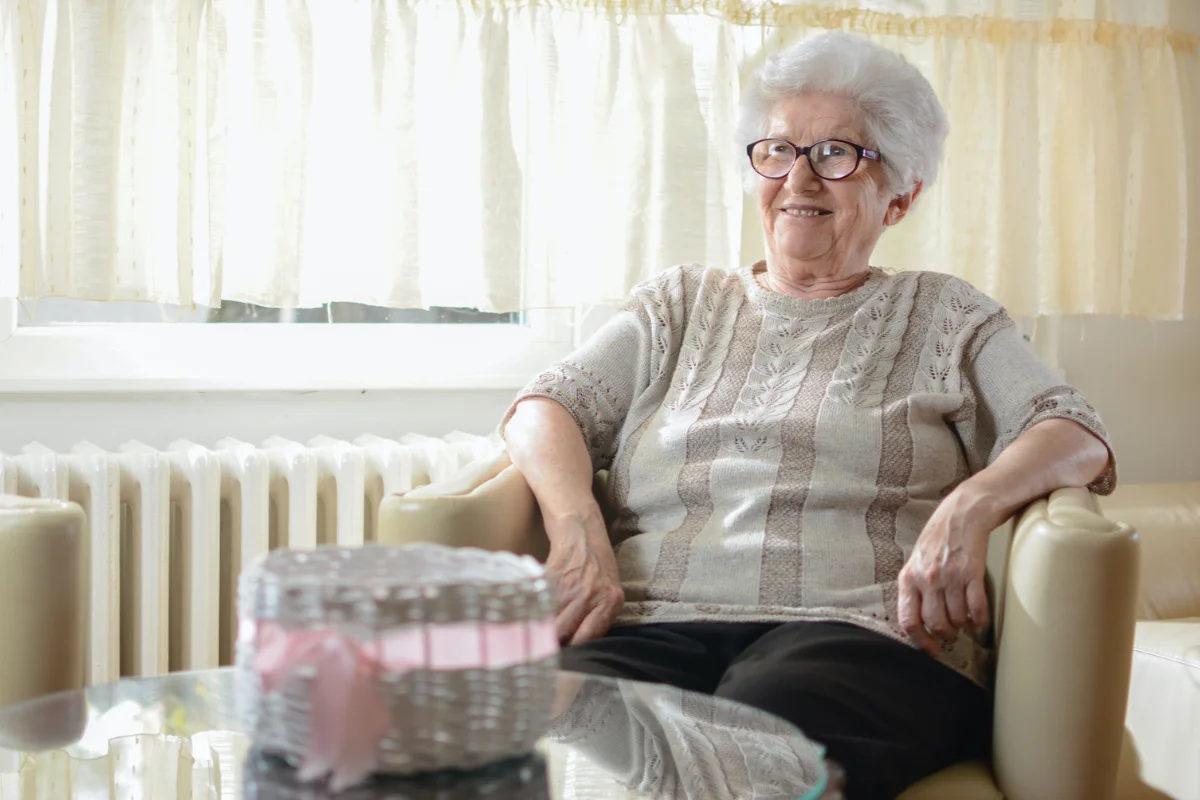All About Memory Care Solutions: Why Small Memory Treatment Homes Are an Excellent Option
Memory treatment services play a crucial duty in supporting people with Alzheimer's and dementia. Small memory care homes attract attention for their customized technique and intimate setting. With lower staff-to-resident ratios, these homes cultivate stronger links and customized treatment. Locals gain from boosted social communications and a secure atmosphere. As family members discover choices, understanding the one-of-a-kind benefits of tiny memory treatment homes becomes essential. What factors should be thought about when picking the best home?
Comprehending Memory Care Services
While lots of might know with general senior treatment alternatives, recognizing memory care solutions is important for households dealing with the difficulties of cognitive decrease. Memory treatment specifically accommodates people with conditions such as Alzheimer's illness and other kinds of dementia. These services supply an organized setting that concentrates on enhancing the quality of life for homeowners with specialized treatment and support.Memory care centers are designed to assure safety and safety, usually including secured environments to avoid wandering. Trained employee are available all the time to aid with everyday tasks, drug monitoring, and personal treatment. In addition, memory treatment programs often include cognitive stimulation tasks, customized to involve homeowners and promote psychological health. Family members can gain from comprehending these services, as they enable educated decisions regarding their liked ones' treatment, making sure that their particular demands and choices are resolved in a thoughtful and encouraging manner.
The Advantages of Tiny Memory Treatment Houses
Tiny memory care homes supply distinct advantages that can greatly improve the quality of life for citizens with cognitive impairments. One substantial advantage is the intimate setting, which allows for individualized interactions amongst personnel and residents. This smaller sized setting cultivates significant partnerships, lowering feelings of seclusion and anxiety frequently experienced by individuals with memory issues.Additionally, the lower staff-to-resident ratio in tiny memory care homes allows caregivers to supply even more alert guidance and assistance. This strategy not only boosts security however likewise advertises a complacency for the residents.Moreover, little memory care homes can adjust rapidly to the unique demands and choices of each local, enabling for a more homey environment. Such an environment can urge social interaction and engagement in tasks, eventually enriching the day-to-day experiences of those coping with cognitive problems.
Personalized Treatment Plans for Citizens
Personalized treatment plans are vital in memory care homes, as they deal with the unique demands and preferences of each local. These strategies start with thorough analyses conducted by skilled professionals, who examine cognitive capacities, case history, and individual rate of interests. This customized method warranties that care is not only efficient yet also respectful of each person's self-respect and autonomy.Moreover, personalized care strategies are flexible, enabling modifications as locals' demands progress over time. This versatility fosters a complacency and knowledge, which is important for people living with memory challenges. Caretakers are educated to implement these strategies regularly, providing support that straightens with the homeowners' routines and preferences.Ultimately, customized care strategies improve the lifestyle for locals by advertising health, involvement, and freedom, making them a fundamental aspect of memory treatment services in tiny memory care homes.
Creating a Home-Like Atmosphere
Creating a home-like setting is critical for cultivating convenience and familiarity in memory care setups, as it considerably influences citizens' psychological well-being. Tiny memory care homes commonly prioritize customized touches, such as cozy shade palettes, household pictures, and acquainted furniture arrangements, which assist locals really feel extra at simplicity. Including elements evocative a standard home, like comfortable living rooms and common locations, encourages a sense of belonging.Moreover, making use of natural light and outside spaces can boost the environment, advertising relaxation and serenity. Employee play a substantial duty in preserving this atmosphere by engaging with residents in a compassionate way, treating them like household. Regular activities, such as food preparation or horticulture, can additionally add to a home-like feeling, providing possibilities for residents to participate in purposeful experiences. Generally, producing a supporting atmosphere supports cognitive function and emotional security, making it a crucial element of memory care services.
Boosted Social Communication and Area
Enhanced social interaction and area are necessary components of memory treatment services. By cultivating individualized social involvement and creating a family-like ambience, these services promote purposeful links amongst homeowners. Team occasions and activities even more urge involvement, assisting individuals really feel extra included and supported.
Customized Social Interaction
While social communication is crucial for general well-being, many people with memory problems typically battle to engage meaningfully with others. Individualized social interaction in memory care homes addresses this challenge by developing tailored activities that satisfy locals' one-of-a-kind passions and capabilities. By focusing on specific preferences, caregivers can cultivate connections that reverberate deeply with everyone. Activities such as art treatment, songs sessions, and directed conversations promote cognitive stimulation and emotional expression. Furthermore, little group setups encourage friendship and enable company website for even more intimate interactions, boosting sensations of belonging. This technique not only deals with sensations of isolation however additionally equips locals to preserve a sense of identification, inevitably contributing to enhanced psychological health and top quality of life.
Family-like Environment
In a memory care setting, promoting a family-like ambience considerably enhances social interaction and constructs a sense of neighborhood among residents. Smaller memory care homes frequently prioritize intimate settings, enabling residents to develop closer links with one another and team member. This nurturing environment advertises depend on, which is vital for individuals with memory disabilities. Homeowners are much more most likely to involve in discussions and share experiences, creating an encouraging network that reduces feelings of loneliness. The experience of shared rooms and regimens contributes to a sense of belonging, better urging social interaction (personalized memory care). In such setups, emotional bonds thrive, resulting in improved general wellness and a better of life for locals as they navigate their everyday experiences together
Group Activities and Events

Safety and Safety Attributes in Tiny Residences
Lots of little homes developed for memory treatment include important safety and security and safety attributes to ensure the wellness of homeowners. These homes commonly use safe and secure access and exit points to prevent straying, an usual issue among individuals with memory problems. Furthermore, surveillance systems and alarm systems improve monitoring, making sure that personnel can quickly react to any kind of unusual activities.Interior formats are customized for safety, with minimized dangers such as sharp corners and clutter-free paths. Handrails and non-slip floor covering are commonly set up to decrease the risk of drops. Team member are learnt emergency situation methods, guaranteeing they are prepared for different situations.Moreover, personalized care plans may consist of analysis of private security demands, giving tailored remedies for every local. On the whole, these security and safety and security features develop a nurturing atmosphere where residents can grow while keeping their dignity and independence.
Exactly how to Pick the Right Memory Treatment Home
How can households assure they select one of the most appropriate memory treatment home for their enjoyed ones? The choice needs careful consideration of a number of aspects. Households need to review the center's staff credentials and training, making sure that caregivers are experienced in taking care of memory-related conditions. Next off, it's vital to evaluate the home's environment, concentrating on safety and security features and whether it promotes a feeling of area and belonging. Checking out the read review facility can offer understanding into daily tasks and the social environment, which are essential for mental stimulation and psychological health. In addition, households need to make inquiries more about the treatment plans offered, ensuring they are customized to individual needs. Ultimately, taking into consideration the home's area and ease of access for household visits can contribute to a smoother change. By attending to these elements, families can make an informed decision that prioritizes their enjoyed one's convenience and lifestyle in a memory care setup.
Often Asked Questions
What Certifications Should Team Members in Memory Care Homes Have?
Staff participants in memory care homes ought to possess relevant qualifications, experience in dementia care, solid communication abilities, and compassion. Continuous training in behavior monitoring and therapeutic interventions improves their capacity to support residents properly.
Just How Do Memory Treatment Solutions Differ From Traditional Assisted Living?
Memory treatment services focus especially on individuals with memory impairments, providing specialized assistance and structured environments. On the other hand, typical assisted living uses general support with daily activities, lacking the customized method required for those with cognitive challenges.
What Kinds of Tasks Are Supplied in Memory Treatment Homes?
Memory treatment homes usually provide a range of activities created to involve residents. Usual choices include art therapy, songs sessions, cognitive video games, exercises, gardening, and social occasions, all targeted at boosting well-being and cognitive function.
Can Residents Bring Their Own Personal Belongings to Memory Care Houses?
Locals can commonly bring their own belongings to memory care homes, enabling them to customize their living area - personalized memory care. This method aids create an acquainted setting, advertising comfort and a feeling of identification for the individuals

Just How Are Relative Associated With the Care Refine?
Family participants play an important function in the care process, typically joining decision-making, going to care conferences, and offering psychological assistance. Their participation cultivates a joint setting, boosting the citizen's general well-being and top quality of life. While several may be acquainted with general senior care alternatives, recognizing memory care solutions is important for households encountering the challenges of cognitive decline. These services offer a structured atmosphere that focuses on improving the top quality of life for locals with specialized care and support.Memory treatment facilities are developed to guarantee safety and security and safety and security, commonly featuring secured atmospheres to prevent straying. Individualized care strategies are crucial in memory care homes, as they cater to the unique needs and choices of each local. Staff participants in memory care homes must possess relevant accreditations, experience in mental deterioration treatment, strong communication abilities, and concern. Memory treatment services focus particularly on individuals with memory disabilities, supplying customized assistance and organized atmospheres.